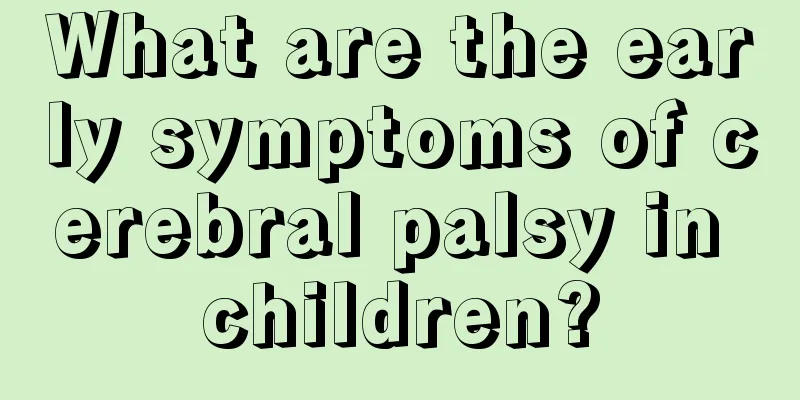Blisters on the child's face

|
Newborns not only have weak physical resistance, but every part of their body is relatively soft, so many parents dare not hold their newborns tightly, for fear of accidentally hurting them. Parents will pay attention to many things when taking care of newborns, the most important of which is hygiene, because if the sanitary environment is not good, the newborn will get sick. Some children have blisters on their faces. What's going on? 1. What is the cause of small blisters on the newborn baby's face? 1. If the baby has small transparent blisters on his face, it may be a case of pediatric eczema. It is recommended that mothers take good care of their babies on a daily basis and apply pediatric eczema cream or Eucerin on the face. Keep the face clean and dry, give the baby more water, and don't wrap the baby too tightly, which is also very important. Also, ventilate the baby appropriately, but be careful not to catch a cold. 2. It may also be herpes. Herpes is a viral infection. It is recommended that you go to the hospital for a diagnosis. The mother should also avoid eating spicy foods. This situation should be treated as soon as possible. After all, herpes is contagious. The small transparent blisters on the baby's face are generally caused by these two situations. 2. Causes of eczema 1. Direct cause: The causes of baby eczema are complex, among which allergic factors are the most important. Therefore, babies with a family history of allergic constitution (such as father, mother, grandfather, grandmother, grandfather, grandmother, brothers and sisters and other family members have eczema, allergic rhinitis, allergic dermatitis, allergic conjunctivitis, asthma, food allergies and drug allergies, etc.) are prone to eczema. 2. Triggering factors: For babies with eczema, many substances can induce or aggravate the symptoms of eczema, such as protein in food, especially fish, shrimp, eggs and milk, contact with chemicals (skin care products, bath products, cleaning agents, etc.), wool products, chemical fiber products, plants (various plant pollens), animal leather and feathers, infections (viral infections, bacterial infections, etc.), and sunlight exposure. 3. Internal factors: There are also internal factors that make babies prone to eczema. This is because the baby's skin stratum corneum is relatively thin, the capillary network is rich, and the endothelium contains more water and chloride, which makes it more sensitive to various stimuli, so it is easy to develop eczema. The above is the health knowledge about baby eczema. Some are caused by allergies, some are hereditary, and there is a family history. Some are caused by contact with allergens. There are also some other factors, such as skin problems. You also need to check to rule out herpes, because the virus is contagious, and you also need to pay attention to your diet. |
<<: How to treat pinworms in children
>>: Blood spots on the child's face
Recommend
What to do if your baby has diarrhea after changing milk powder
Babies basically stop drinking breast milk when t...
How to deal with children's ears full of earwax?
Children's earwax also needs to be cleaned re...
Newborns should be careful of side effects when taking Yinzhihuang oral solution
Newborns will inevitably have some gastrointestin...
What should I do if my child has allergic reactions and itching all over his body?
Children are still very prone to allergies. On th...
Mild tricuspid regurgitation in children
Tricuspid regurgitation is a physiological manife...
What are the benefits of baby massage and touch exercises
As people's living standards continue to impr...
Why does my seven-month-old baby not like to laugh?
Babies are the angels of every family. The physic...
What are some tips for treating baby’s runny nose?
When the weather changes, children are prone to c...
Why are children so stupid?
I believe that every parent hopes that their chil...
What to do if your child feels uncomfortable after eating too much
For the baby at home, the child's diet can be...
What to do if your 2-year-old baby has vomiting and diarrhea
Children aged 2 are in the period of growth, so t...
How many times do children change their teeth?
Teeth are one of the most important things in a p...
What are the symptoms of zinc deficiency in babies?
When it comes to children suffering from zinc def...
What to do if a three-year-old baby has mild anemia
Children's anemia needs to be divided into mi...
What are the symptoms of stomach pain in a six-month-old baby?
Babies in their early childhood are very prone to...









